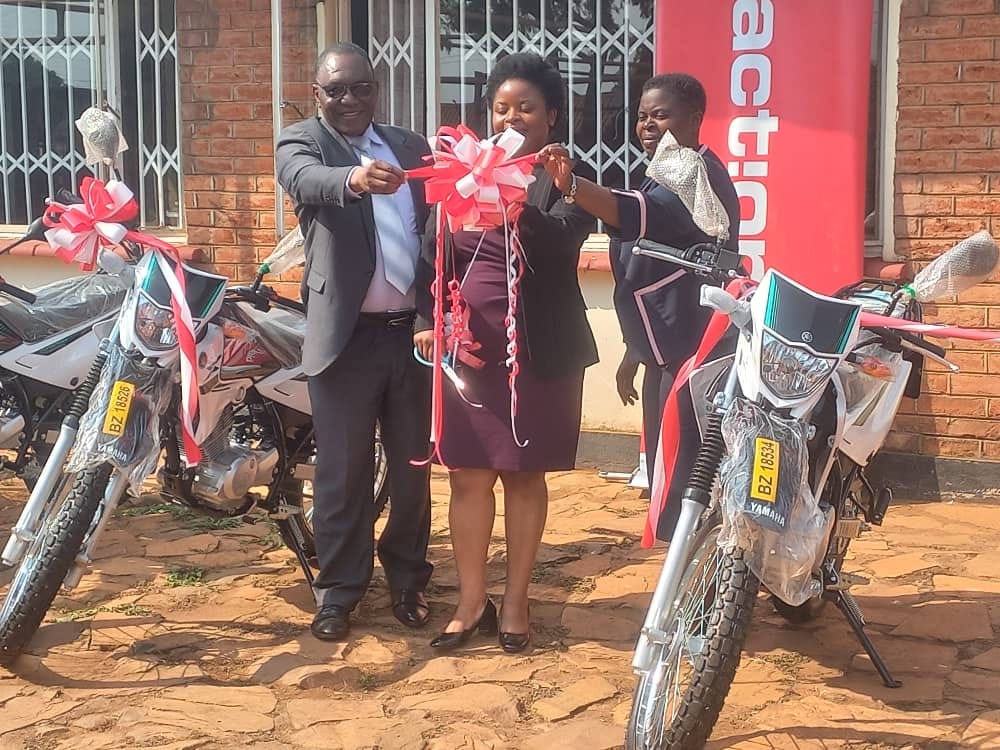ActionAid Malawi Equips Health Project With 12 Motorbikes to Boost Community Engagement
This initiative underscores ActionAid's commitment to empowering communities to take ownership of their health and well-being.
LILONGWE, Malawi-To address transportation challenges and expand outreach in rural Malawi, ActionAid Malawi has donated 12 motorcycles, worth K156 million, to its health project partners, writes Wendi Mkandawire.
This donation, announced at a handover ceremony on Aug. 20 in Lilongwe, aims to strengthen community systems and support community-led monitoring initiatives across 12 districts.
The donation comes as ActionAid Malawi focuses on a third wave of grant funding (2024-2025) for its health project.
This wave shifts its focus from addressing the COVID-19 pandemic's impact on TB, HIV, and malaria to strengthening community health systems.
"We are concentrating on two primary areas: community-led monitoring and advocacy, along with building the capacity of community structures to prepare for future pandemics," said ActionAid Malawi General Director Yandura Chipeta.
The 12 motorcycles will be used by community-led monitoring assistants in the 12 districts where ActionAid operates.
The project partners receiving the motorcycles are CRECCOM, the Catholic Health Commission, and MANET+.
"This donation will assist in addressing the transport challenges for the community-led monitoring assistants who are working with 12 districts under ActionAid," said Lawrence Nkhonyongwa, executive director of the Malawi Network of People Living with HIV (MANET+).
The motorbikes are expected to significantly improve access to health services in remote and underserved communities.
ActionAid operates in the districts of Mzimba, Mwanza, Dowa, Nkhotakota, Salima, Rumphi, and Likoma.
This initiative underscores ActionAid's commitment to empowering communities to take ownership of their health and well-being.
By investing in transportation and capacity building, ActionAid aims to ensure that essential healthcare services reach those who need them most, contributing to a stronger and more resilient health system in Malawi.



